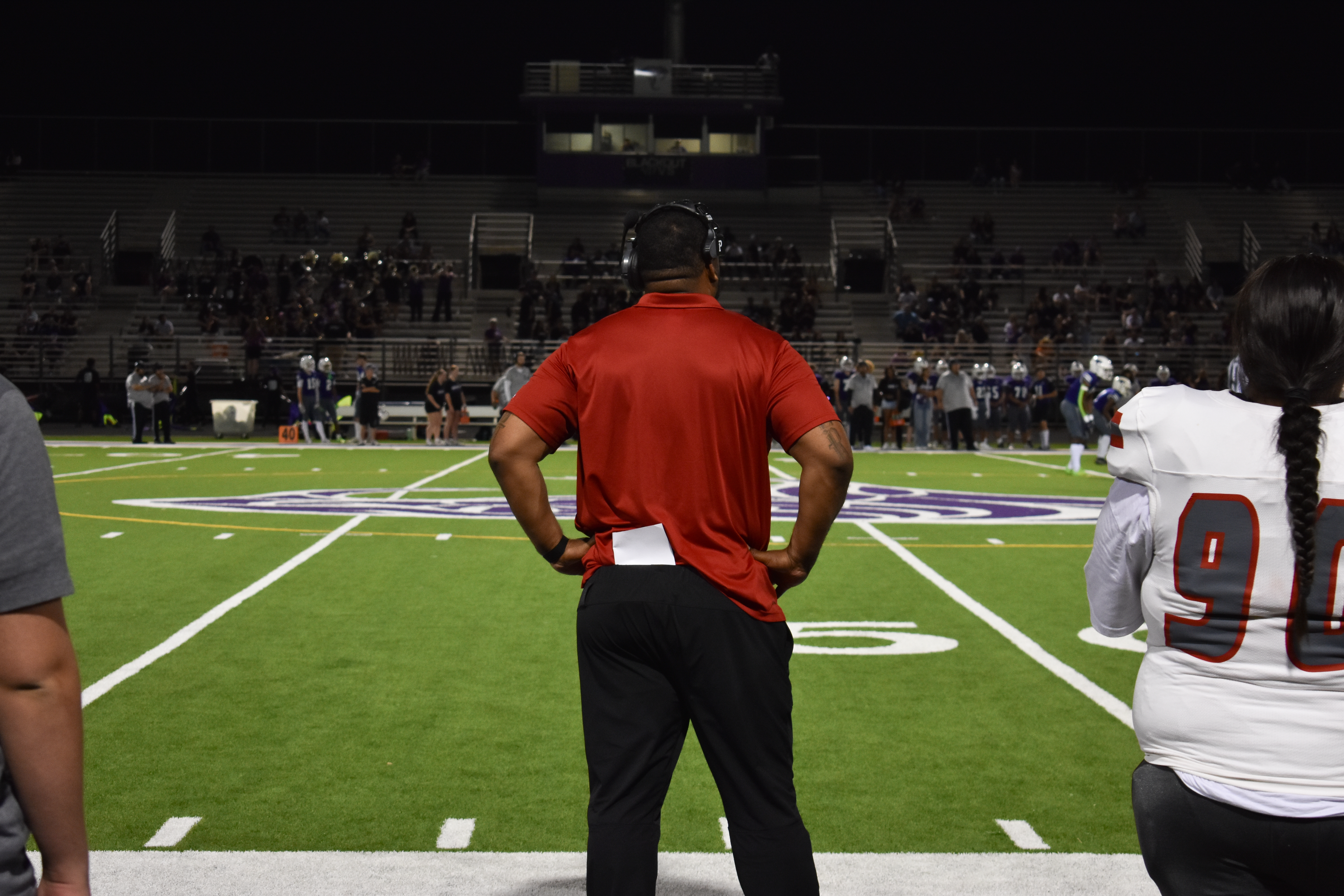How Chris Barrett landed at Central High School
December 4, 2024 by Jonah Simkin England, Arizona State University

Jonah Simkin England is an ASU Cronkite School of Journalism student assigned to cover Central High School for AZPreps365.com.
The bite of the cool Arizona morning was interrupted only by running shoes clopping and the occasional whir of a car's engine. From the crest of a dimly lit Phoenix bridge, the sun became barely visible over the desert horizon. Halfway across, and the night began to give way to a newly-blue skyline.
This running route was not new to the Pinnacle High School football team. It was a conditioning day the team had become used to. Still, something was different. Something was seemingly missing. They were alone. Solely dependent on each other for the first time. Only the idea of a player-lead conditioning day was supplied by varsity coach Chris Barrett.
“He has been a great role model for me,” Pinnacle quarterback Wyatt Horton said. “He has helped give me the vision for how I should be and how a team should be.”
Barrett played football at University of Southern California before becoming the head football coach at Central High School in Phoenix, Arizona, in 2024. In his tenure at USC, Barrett helped the team win two National Championships and four Pac-12 Championships. His football career was cut short when Barrett tore his achilles before his chance at the NFL draft. In 2012, Barrett turned his attention to coaching and left the United States to settle in China.
The opportunity to coach across seas was presented to Barrett during his visit to former teammate John Walker’s home in Long Beach, California. Sitting in Walker’s gym was football ambassador, Joe Wang, with hopes of recruiting Barrett to join him in China.
“In my life, I have always been in the right place at the right time,” Barrett said.
Barrett’s time in China started as an experiment. 50 Chinese collegiate athletes were ushered to a local soccer field for a three-week summer football camp. The athletes had never watched or played American football, which made the camp their first-ever experience with the sport. By the end of the camp, the athletes were able to play an organized game against each other. The camp was considered a success and opened more opportunities for Barrett.
Once back in the United States, Barrett received a call from Harbin University, a college based in Harbin, China, asking Barrett to return to China to start a football program at the school. It would be the first college football program in China. Later that year, Barrett found himself on a 15-hour plane ride directed for Beijing, China, for the second time.
Harbin University is split into separate schools for different specializations. One of those subsections, Harbin Sport University, is solely for athletes.
Barrett was hired to not only coach at Harbin Sport University but also to coach the purely academic school.
On the first day of Harbin University football practice, Barrett looked out over a field with 60 students on it.
“I would say 70% of them were there just to see a big, Black American and take pictures with him,” Barrett said. “Then the second and third day I was down to like 30 kids. By the fourth week, I was back up to 50 kids.”
As practices continued, two groups were naturally formed. The first group was the group from Harbin Sport University. Barrett observed these kids to be bigger, stronger and faster than the others. The second group were the kids from the academic school. They were smaller, weaker and slower, but what these kids lacked in physical traits, they had in intelligence.
The discrepancy between the two groups of students did not go unnoticed. As a result, the group excluded from Harbin Sport University requested more practice. Barrett’s compromise was to hold two practices a day. The first was marked by the sunrise, an early practice exclusive to players who wanted extra work. The second was a mandatory practice that included the Harbin Sport University players.
“We ended up playing a game in front of 27,000 people,” Barret said. “And guess who won? It was a non-PE school. The reason why was because I was able to teach them. They were smart.”
Barrett stayed in China for five years after leaving Harbin University. He started football programs at five other schools. Barrett then played a role in the creation of the China Arena Football League, which hosted a mix of Chinese and Americans, but did not stay relevant and dispersed in 2019.
Barrett moved back to the United States and began a teaching career at Pat Tillman Middle School in Phoenix, Arizona, in 2018. Around that time, he started a family. In 2020, he was named the defensive line coach at Pinnacle High School also in Phoenix, Arizona. Barret stayed at Pinnacle from 2020-2023 as a varsity coach. During that time, Pinnacle went 23-22 and were consistently ranked in the top 20 for Arizona high school football programs.
In ealy 2024, Barrett accepted the head coach position at Central High School. Central had won the two previous Division 5A state championships while only losing three games during the stretch. Since Barrett joined the team, Central is 2-5 following key injuries to its offense.
Still, Barrett has remained positive about the season and has pointed to the injuries as a large reason for the recent struggles.
Barrett is not the sole believer in the Central football team. Kevin Belcher, Central High School Athletic Director and Assistant Principal is also in its corner.
“I think Chris is doing an excellent job,” Belcher said. “It is beyond the X’s and O’s. He’s not one to yell at the kids. He coaches them up, teaches them. Every moment is a coaching moment whether it’s life or football.”



